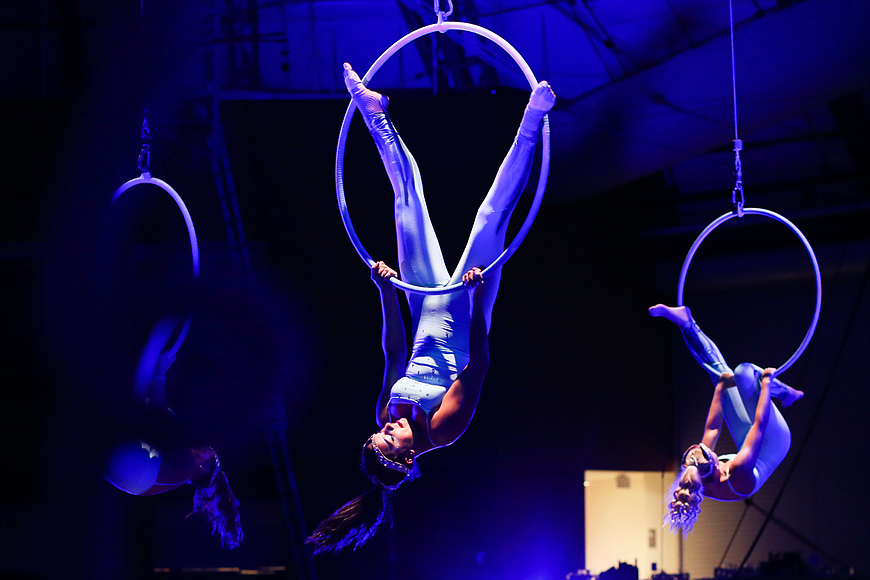- December 26, 2024
-
-
Loading

Loading

Sarasota’s long-running history with circus arts will soon expand into the classrooms of Sarasota High School.
In partnership with Circus Arts Conservatory, Sarasota High will bring a magnet, or student-choice program, to Sarasota County students, following Sarasota County School Board’s approval Tuesday.
The original Sailor Circus grew out of an extension of courses at Sarasota High in 1949, and the Circus Arts Conservatory currently partners with the school board to bring various circus enrichment programs to elementary school students.
Now school leaders hope the magnet program will allow students from all over the district hone their passions for the circus arts while continuing their academic career, Sarasota High Principal David Jones said.
“I thought, since this is a visual performing art-type endeavor, wouldn’t it be cool if we could have a magnet program — given the heritage of the Sarasota community — that these kids could actually come together [and] do some of their training, much like a VPA model, for two periods during the day with expert instructors?” Jones said.
The pilot program, which will begin in the 2019-20 school year, has 20 students enrolled. In the future, Jones said the school would recruit from all over the district in the hopes of reaching a capacity of 50 students.
The pilot curriculum was developed around physical education courses, though as the program progresses, leaders said it will likely include other disciplines, such as visual arts and business management.
The magnet program will be a four-year program, and students will be placed in either an introductory or intermediate-level course based on applications and auditions. Students in the program must maintain academic standing by receiving a C or higher in all academic courses.
Introductory students would take courses in circus movement composition, in mental-training and managing injuries in physical theater, in aerial awareness and acrobatics, and in lifestyle fitness during a two-period block during fourth and fifth periods.
Intermediate students will take courses in circus specialities, circus techniques, circus career exploration, circus arts capstone and circus arts mixed-media research during seventh and eighth periods.
A long-term curriculum objective is to have Circus Arts students participate in the Advanced Placement capstone, through AP seminar and research coursework, which would focus on history, management and trends in the circus profession.
“We want to give students this opportunity to pursue their passions in the circus but also gain valuable skills that they can take forward into a university system, should they continue all the way through the program,” Sarasota High Assistant Principal Michelle Anderson said.
Courses will be taught by a teacher certified in physical education and adjunct professionals from places with a strong circus arts background, such as Florida State Circus and the conservatory.
In addition to the cost of teachers, the school board will pay $10,500 to the Circus Arts Conservatory for the 2019-20 school year for the cost of utilities.
In a letter to the school board, conservatory President Pedro Reis said these courses would provide invaluable resources to enhance the educational values of the circus arts.
“Utilizing the circus arts helps to transform instructional practices, offer initiatives that personalize learning, improve school culture and provide extended learning opportunities for all students,” Reis wrote.
Because students in the program will participate in their classes in the conservatory facilities, less than a quarter mile from Sarasota High, board members had a few liability concerns.
Although board member Bridget Ziegler is in favor of the magnet program, she expressed concerns over who would be responsible for student injuries if they were to arise and responsible for the potential future cost of insurance for the program.
Superintendent Todd Bowden said students would not be doing the high-danger training, such as the high wire or trapeze, during school hours. However, if a student is injured during class time, he said it would be the school board’s responsibility.
The contract was approved, so the 20 students in the pilot program can now begin classes.